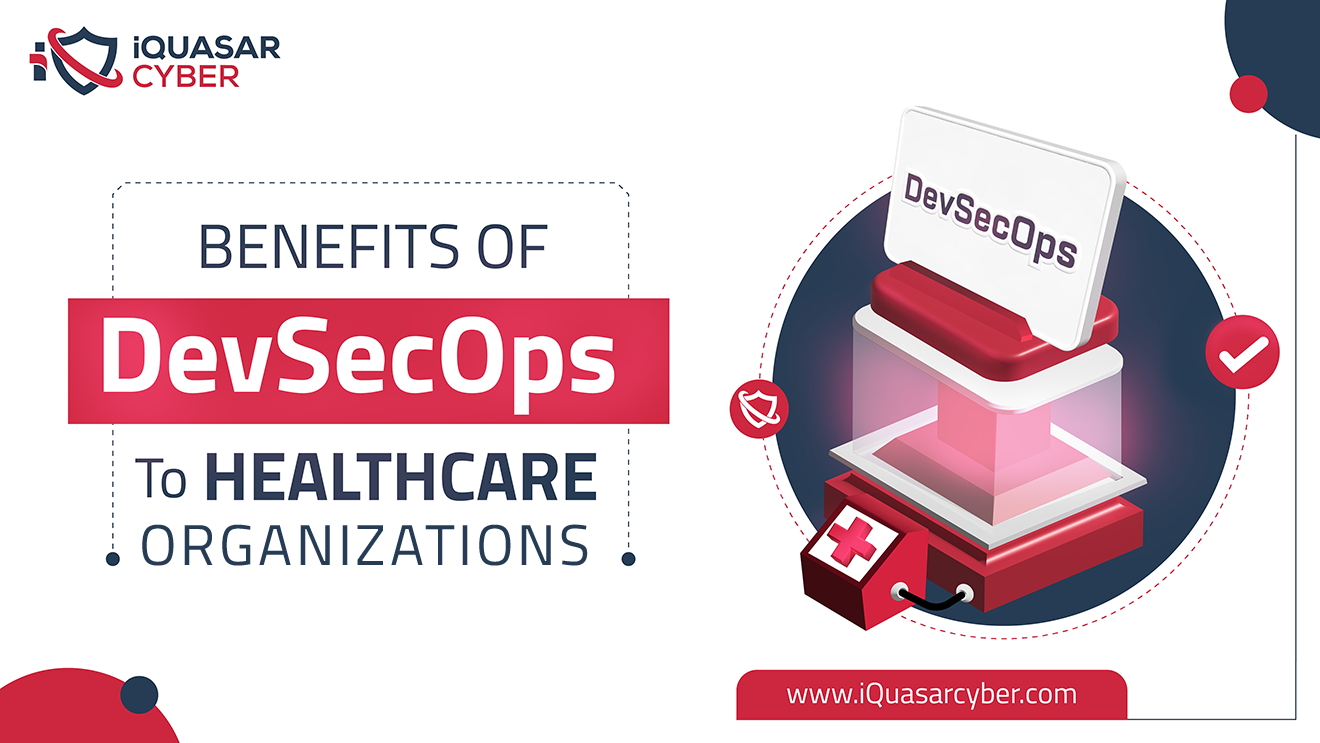
DevSecOps, an abbreviation for Development, Security, and Operations, is a software development approach that emphasizes integrating security practices into the entire software development lifecycle, from design to deployment and maintenance. It builds on the agile and DevOps methodologies to promote collaboration and communication among development, security, and operations teams. In our previous blog, we introduced the concept of integrating security into the Software Development Life Cycle process (SDLC) and discussed the key principles and practices that make up a successful DevSecOps program. In this blog, we will focus on the benefits healthcare organizations can realize by embracing DevSecOps. Whether you’re just starting to explore DevSecOps or are looking for ways to enhance your existing program, this blog will provide valuable insights and practical advice for achieving success. Below are some of the significant benefits of implementing DevSecOps in the healthcare industry.
Incorporating security processes refers to the ability of DevSecOps to enhance an end-to-end security approach and embed security early on in the SDLC process. These security processes help identify vulnerabilities at an early stage and lower the risk to application and product development. Incorporating security processes into the development process can result in quicker, secure, low risk and more efficient deployments helping organizations achieve business goals in a secure manner. Automating SDLC processes, in conjunction with secure coding and testing, can address potential vulnerabilities at an early stage and reduce the risk of data breaches.
The security of patient data is paramount in the healthcare industry. DevSecOps can help healthcare organizations develop secure applications and products to lower the risk of data breaches. By using DevSecOps, healthcare organizations can ensure their software and applications are secure and vetted securely, providing a better experience for patients and staff.
Security is integrated into the entire software development process, so security vulnerabilities are detected early in the development cycle. As the SDLC progresses, so do the security processes identifying vulnerabilities early on. Since the inception of security into the SDLC process, code is reviewed, scanned, audited, and tested at critical junctures to identify security gaps early on and provide remediations immediately. Fixes are introduced early before they burden the SDLC process. This makes addressing these vulnerabilities easier and more cost-effective before attackers can exploit them.
Integrating security into the development process helps to reduce the risk of security breaches, data loss, and other security incidents. This, in turn, helps to build customer trust and maintain a strong reputation. As DevSecOps focus on mitigating gaps as a part of the SDLC process, risk due to unmitigated vulnerabilities are minimized, thereby reducing the risk to an organization. Risk reduction can be instrumental in becoming a driver for embedding “Security” into DevOps processes.
By incorporating security and compliance requirements into the development process, companies can ensure that their applications comply with industry regulations and standards, such as HIPAA (Health Insurance Portability and Accountability Act), and PCI-DSS (Payment Card Industry Data Security Standard), etc.
4. Quicker Application Deployments
DevSecOps can speed up the software delivery process while reducing the costs associated with the development process and reducing the time to deliver business functionality. DevSecOps enables software delivery faster and more efficiently without sacrificing security by automating security testing and incorporating security into the development process. It provides an efficient framework that allows business analysts, application and system architects, developers, and testers to quickly identify and address issues appropriately, minimizing the time and cost associated with continuously fixing flaws at the later stage of the SDLC process.
5. Increase in Revenue
DevSecOps helps organizations build client trust and improve customer satisfaction by providing secure and reliable software and applications. When clients feel confident that their personal and sensitive medical data is secure, they are likely to continue using the service and even recommend it to others. It can result in an increase in new customers and a boost in overall revenue for the organization. Additionally, positive feedback from satisfied customers can help healthcare organizations increase customer satisfaction, build a strong reputation, attract more business and drive positive results for the company.
6. Effective Collaboration
DevSecOps improves the relationship and teamwork between critical teams involved in the software development process. DevSecOps can bring business owners, project owners, developers, security teams, and IT professionals together by facilitating close collaboration at each stage of software development. Close collaboration ensures that teams work together to meet the specific goal and that any potential security risks are identified and addressed quickly. By bringing all these teams together, DevSecOps fosters a culture of collaboration, communication, and teamwork, leading to better quality software and improved security.
As the healthcare industry faces security threats and regulatory requirements, embracing DevSecOps is becoming increasingly essential for ensuring patient data safety and security and for healthcare organizations’ success. Incorporating DevSecOps into the SDLC process can bring numerous benefits to healthcare organizations. By prioritizing security in the software development lifecycle, organizations can ensure that they can deliver high-quality, secure, and reliable business features for their patients, staff, and stakeholders.
iQuasar Cyber offers healthcare organizations essential proficiency and support to ensure secure digital transformation. Schedule a consultation to discover our cybersecurity services and how they can safeguard your healthcare data with tailor-made solutions.